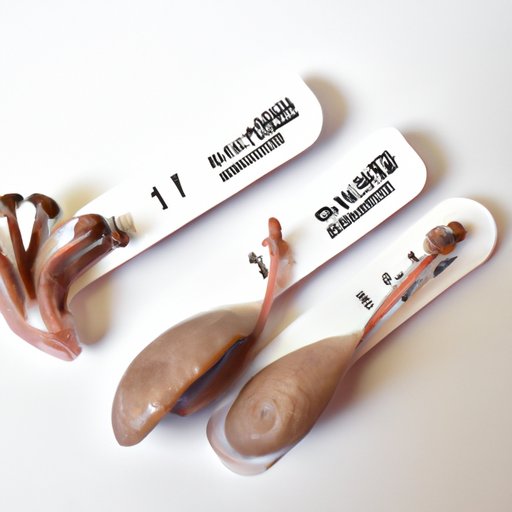
I. Introduction
Placenta is a vital organ that develops during pregnancy and plays a crucial role in the growth and health of the fetus. While many people consider placenta as medical waste, some have discovered that it has a surprising market value. In this article, we will explore the topic of selling placenta and provide a comprehensive guide on how to legally and safely sell it. This article is aimed at anyone who is curious about placenta sales, including expectant mothers, health professionals, and entrepreneurs.
II. The Surprising Market for Placenta: How to Make Money from Afterbirth
Placenta has been used for centuries in traditional medicine for its potential healing properties and nutritional content. However, in recent years, it has gained popularity among a broader audience, including people in the beauty and wellness industry.
Some of the ways in which placenta is used include:
- Placenta capsules – which are said to promote postpartum healing and lactation
- Placenta cream – which is believed to have anti-aging properties
- Placenta tinctures – which can be used to boost energy levels
Placenta is also used as an ingredient in some high-end cosmetics and skincare products due to its supposed skin benefits.
If you’re considering selling your placenta, there are different ways to do so, including through placenta encapsulation services, which process it into capsules. The earnings potential varies depending on location and the method used, but some companies claim to pay anywhere from $50 to $250 for a placenta.
III. The Science of Selling: What You Need to Know About Placenta Sales
Placenta is composed of a range of biomolecules, including proteins, amino acids, and growth factors, that are believed to have potential health benefits. While some scientific studies have been conducted to investigate placenta’s properties, the findings are inconclusive.
To prepare placenta for sale, it is first cleaned and dehydrated, after which it is ground into a powder and encapsulated. It is crucial to ensure that the process is carried out in a sterile environment to minimize any risk of infection.
IV. From Medical Waste to Valuable Resource: The History of Placenta Sales
Placenta has been used for medicinal purposes in many cultures. In traditional Chinese medicine, it is used as a blood tonic and to treat fatigue and anemia. In some African cultures, the placenta is buried as a symbol of birth and regeneration. However, placenta sales have gained popularity in western countries in recent years.
The rise in placenta sales can be attributed to advancements in medical technology that have enabled practitioners to better understand its composition and potential benefits. Today, placenta sales are a multimillion-dollar industry worldwide.
V. Placenta for Sale: A Cultural and Ethical Analysis
Placenta holds cultural significance in many societies, and attitudes towards its sale vary accordingly. Some cultures believe that placenta should be disposed of in a dignified manner, while others believe that it has healing properties that should be harnessed. It is essential to learn about the cultural sensitivities around placenta sales and approach the issue with sensitivity and respect.
There are also ethical considerations to be taken into account when selling placenta. Some people believe that selling placenta is unethical as it commodifies the human body. Others argue that it is a legitimate business practice that allows people to benefit from the potential properties of placenta. It is important to weigh these competing ethical viewpoints before deciding whether to sell your placenta.
VI. The Pros and Cons of Placenta Sales: Is it Worth it?
Before deciding to sell your placenta, it is important to weigh the potential benefits and drawbacks. Some of the benefits of placenta sales include earning extra income and contributing to medical research. However, there are also potential risks, including infection and ethical concerns.
It is crucial to research placenta sales thoroughly before deciding whether it is worth the potential risks. It is also essential to ensure that you are selling your placenta legally and safely.
VII. The Ultimate Guide to Selling Your Placenta: How to Navigate the Legal and Medical Landscape
Selling placenta is a legal gray area in many jurisdictions, and regulations can vary widely from state to state. In general, it is legal to sell your placenta as long as it is done through a reputable vendor and following established procedures. However, it is always advisable to check with your local health authorities and legal experts before proceeding.
It is also important to ensure that you are selling your placenta safely. Placenta encapsulation should be carried out in a sterile environment to minimize any risk of infection.
VIII. Conclusion
Selling your placenta can be a way to earn extra income and contribute to medical research. However, it is important to approach the issue with sensitivity and consideration of cultural and ethical implications. Before selling your placenta, it is also essential to research the topic thoroughly, ensure that you are following the necessary regulations, and take care to ensure the safety of yourself and your baby.
Overall, placenta sales remain a controversial topic, but for those who are interested, there are ways to legally and safely sell it.




